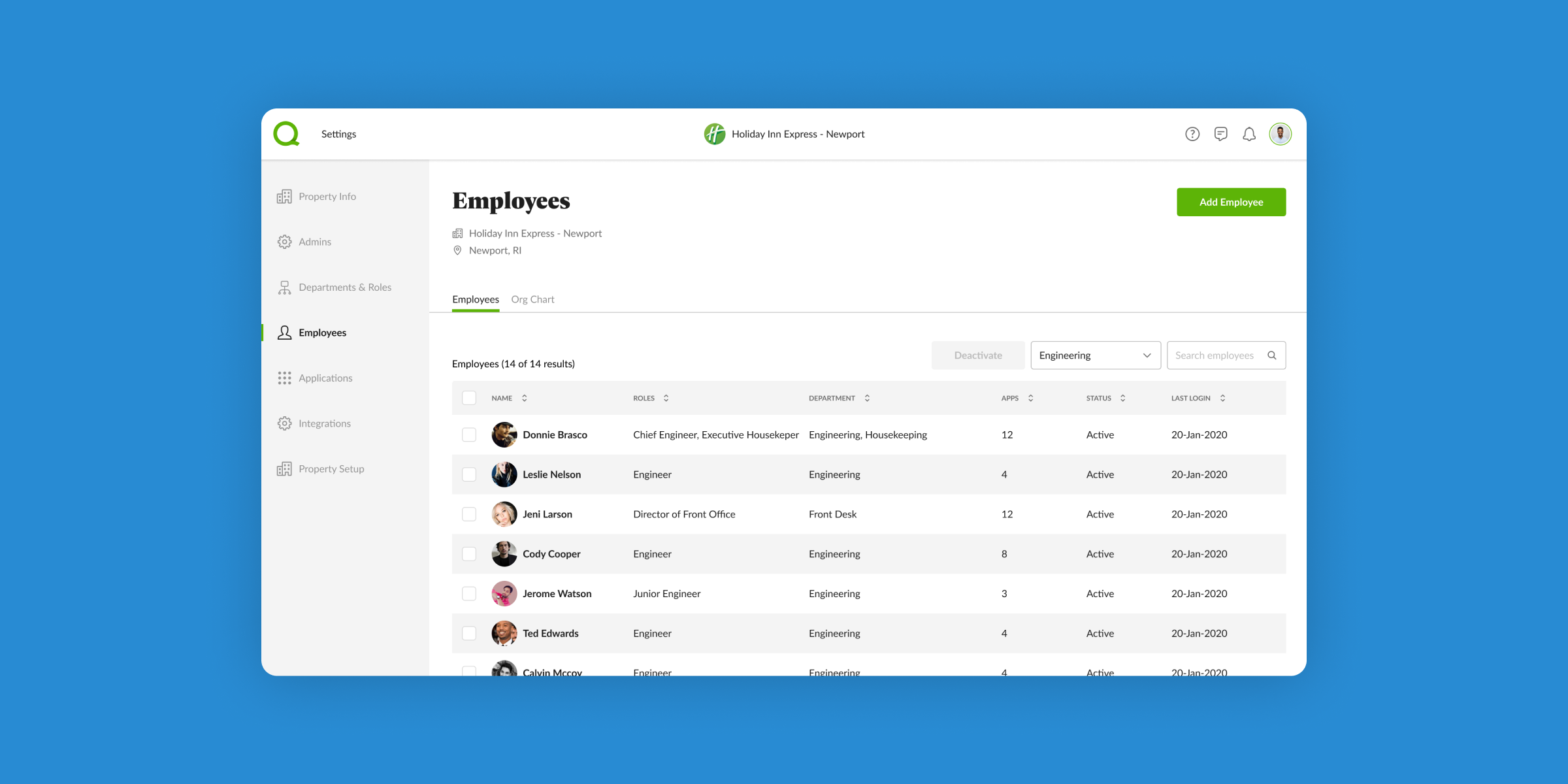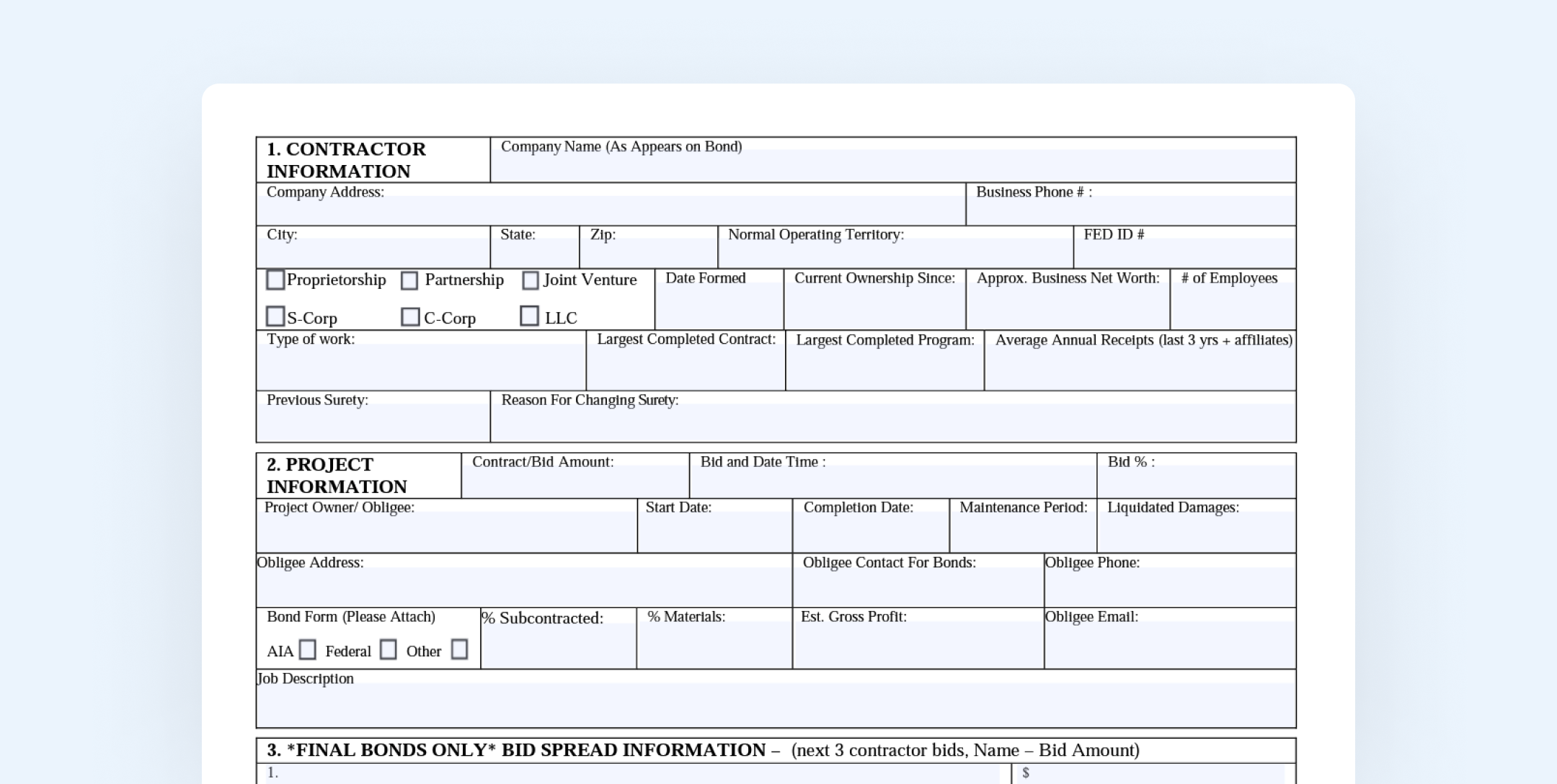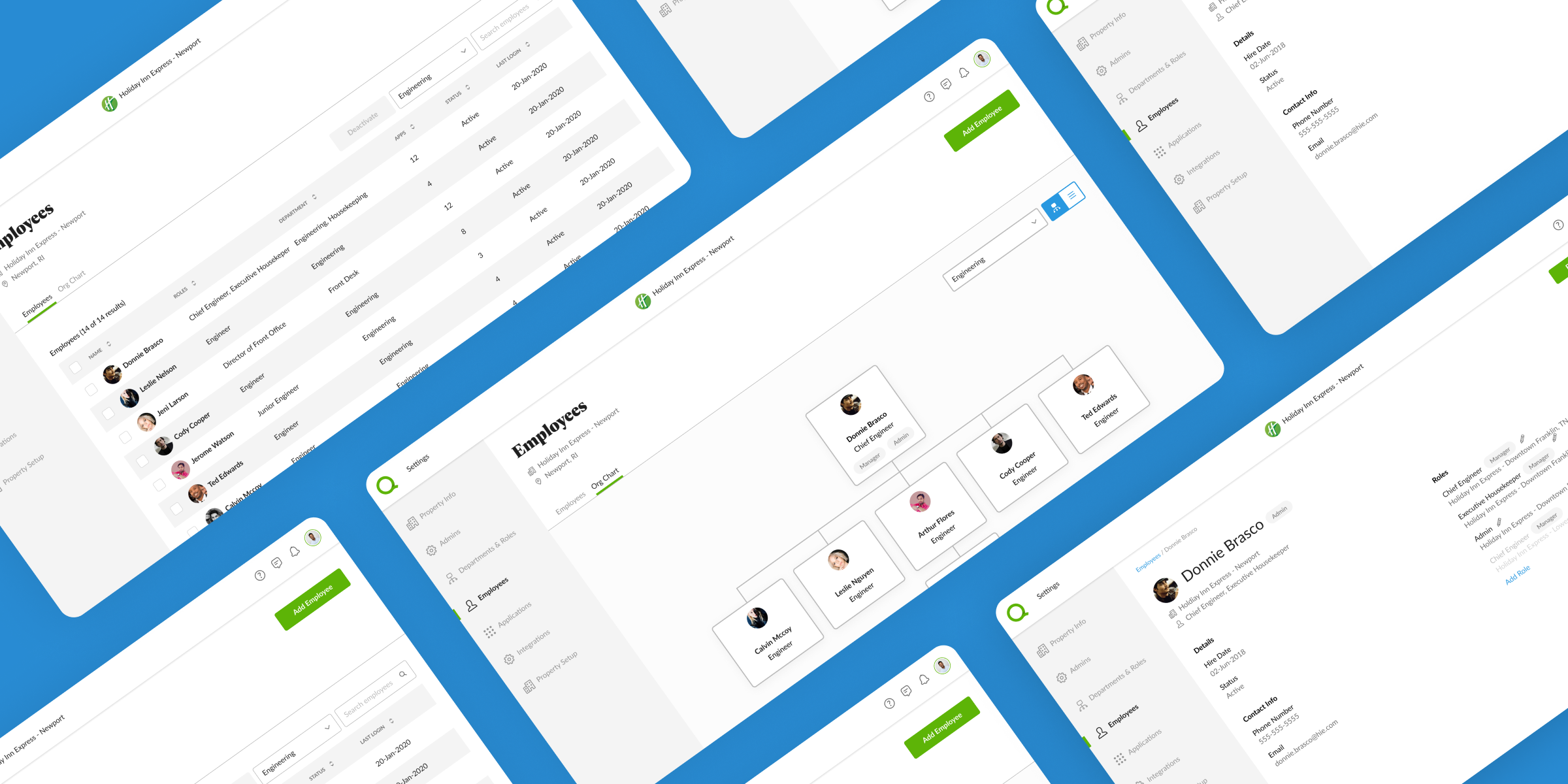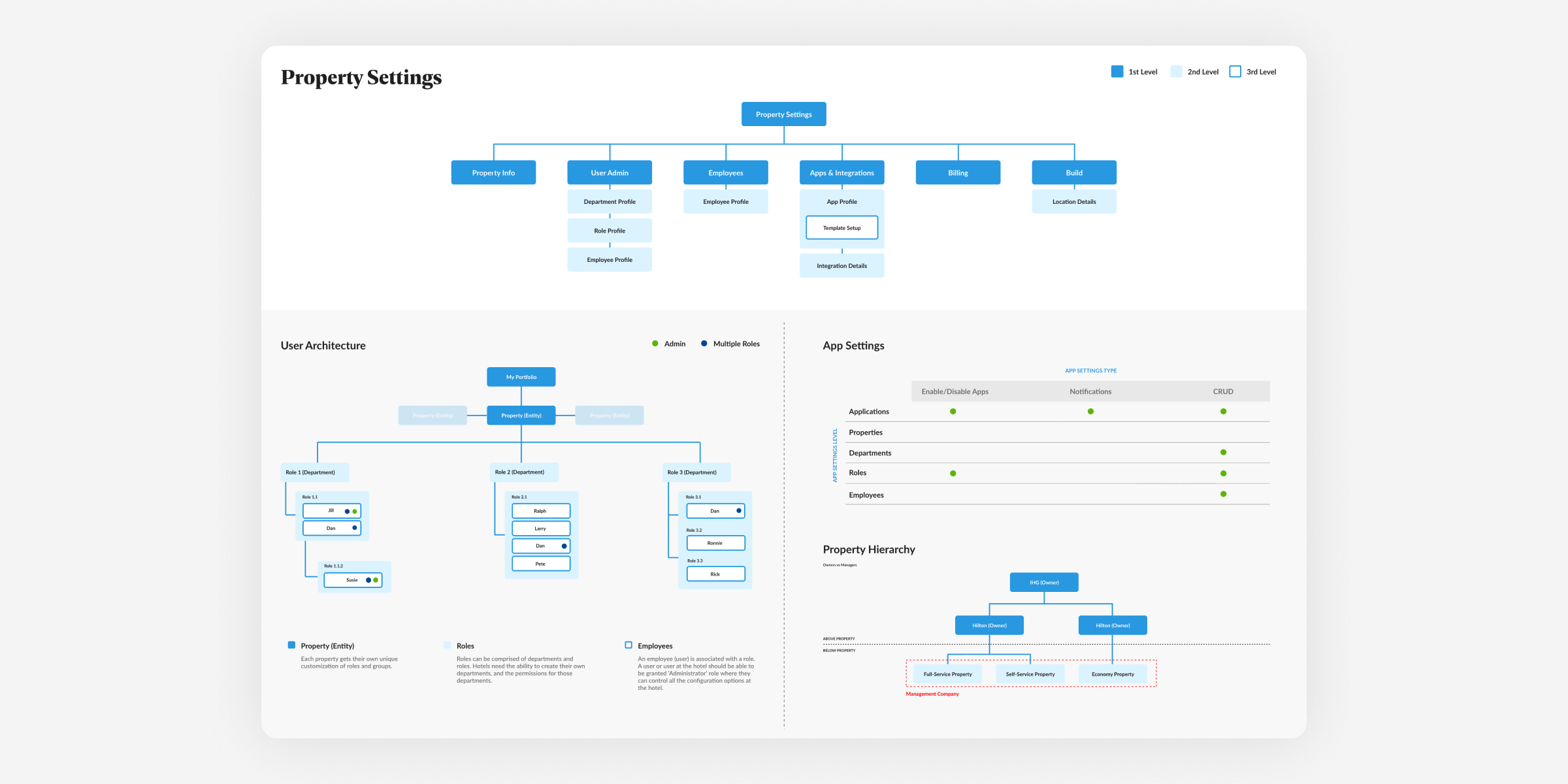Allow property managers to customize Quore to fit the uniqueness of their property.
Company
Quore Systems

The existing product lacked the granularity and flexibility to support a variety of property types. Major problems included users couldn’t create custom roles or group employees by department and lacked ability to configure role-based notifications. As a result, managers often relied on our support staff or created workarounds to get access to information they needed.

Original settings experience

Original settings experience

Information gathering
I worked with stakeholders to collect data around role permissions and gained an understanding of unique roles and relationships for full-service properties. I then identified notifications settings across all apps. The goal was to create an out-of-the box experience that scaled for any property type. User Research I worked with our UX researcher to help interview a group of GMs and above property managers to understand needs and validate pain points. We also wanted to better understand current pain points, role dynamics, notifications permissions and testing assumptions Common pain points included the lack of escalated notification common pain point due to guest impact (e.g. no heat in room) and role customization was biggest feature request.

Figure 3: Information Gathering
Information Architecture Once I had a clear grasp on the problem space and business requirements I created sitemaps around the new settings experience and role architecture. I also used this as an opportunity to consolidate “Account Settings” with “Property Settings” to provide a singular settings experience.
Information gathering

With validation from wireframes I moved forward with high-fidelity designs. We also used this as an opportunity to introduce new UI standards and a new full-screen layout. I introduced vertical nav bar for clear visibility of settings categories. Included hierarchal views to offer visual view of relationships.

Figure 8: Designs


This effort was unfortunately tabled due to the pandemic. Had we continued with this effort we would have built an MVP and continued to iterate, measure and learn.

Figure 9: Hi-fi Designs